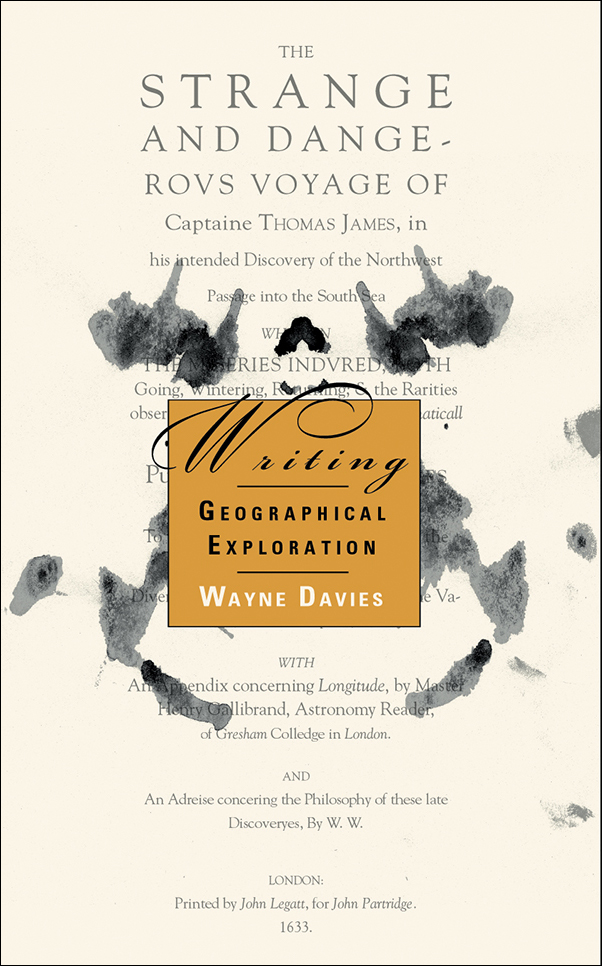
Writing Geographical Exploration: Thomas James and the Northwest Passage, 1631-33
Wayne K. D. Davies
$49.95 CAD / $56.95 USD
344 pages, 15 illustrations
8 x 10 inches
Hardback: 978-1-55238-062-8
Library PDF: 978-1-55238-481-7
March 2004
Writing Geographical Exploration summarizes the various factors that influence the writing and interpretation of exploration narratives, demonstrating the limitations of the assumption that there is a direct relationship between what the explorer saw and what the text describes. Davies offers a revisionist evaluation of Captain Thomas James, who spent eighteen months in search of the Northwest Passage in the 1630s, to illustrate how modern textual analysis can enrich the appreciation of a traveller’s account.
Though James’s work has been dismissed in the modern period, his work was highly regarded in previous centuries by scientist Robert Boyle and poet Samuel Coleridge. James was not a first-rank explorer, but he was an able navigator and leader, a perceptive scientific observer, and a master author who produced a thrilling tale of adventure that should occupy a more prominent place in exploration writing and history, literary theory, and post-modern geography.
Wayne Davies has written over a hundred academic essays and authored or edited nine books in a wide variety of research areas, including urban geography and the methods of geography. He is professor emeritus in the Department of Geography at the University of Calgary.
Figures and Tables
Preface
Captain Thomas James: The Case for Re-Assessment
Introduction
Traditional Stories of Explanation
James and the Discovery of Hudson Bay
James and the Canadian Literature
James and the Anglo-Welsh Tradition
Subsequent Organizations
Part A: Interpreting Exploration Narratives
Exploration Writing and Literary Concepts
Introduction
Exploration, Travel and Literature
Divergence of Exploration Writing and Literature
The Power of Literal Advantage of Writing Cultures
Alternative Functions of Exploration Writing
Conclusions
Interpreting Explorations: The Three Stages of Construction
Introduction
Cognitive Construction
The Construction of Narrative
The Readership Construction
Themes in Exploration Literature
Part B: Evaluating the Work of Captain Thomas James
The Lure of the Northwest Passage: Preparation and Journey
Introduction
Previous Welsh Connections
The Threat of a London Venture
James’s Early Life
James’s Voyages
Locational Identifications and Cognitio
Introduction
Establishing Location
Mapping and the Questions of the Northwest Passage
Labelling the Land
Experiencing the Land
Identifying and Measuring Environmental Conditions
Interpretation and Representation
Introduction
Purpose of Narrative
Power Relationships
Organization and Style
Aesthetics and Environmental Processes
Representations of Aboriginal People
Instrumental Functions
Introduction
Subsequent Utility
Changing Purpose: From Journey to Narrative
Stimulation of Others
Cultural Self-Reflection
Personal Results: James’s Later Life
A Passage Not Found: Passages Created
Introduction
James and his Critics
Exploration and Scientific Achievements
Conclusions
References
Index
An ambitious book . . . It addresses important, even if fashionable, issues that concern all whose interest or specialism takes them into engaging with accounts of travel modern or ancient.
—C.W.R.D. Moseley, Polar Record